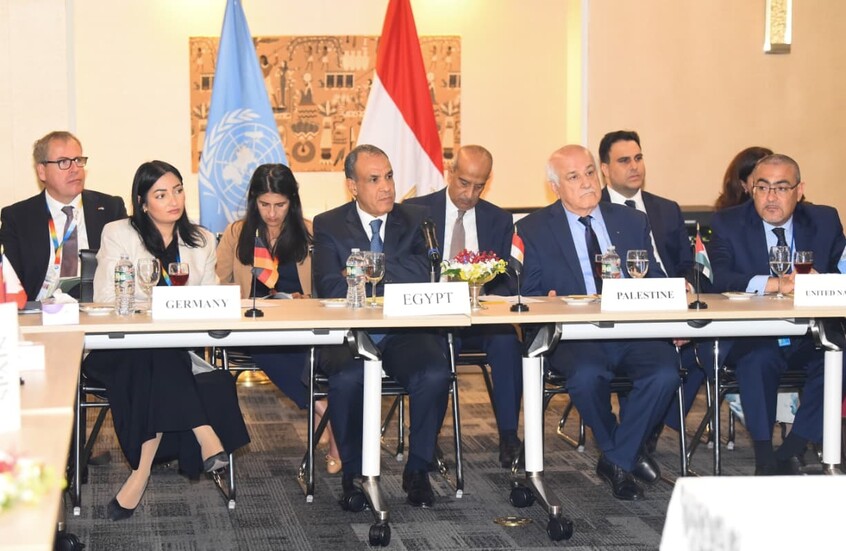Ministers from 20 Countries Discuss Gaza Recovery Plan in New York and Warn of the Risks of Forced Displacement

The Egyptian mission to the United Nations in New York hosted a high-level ministerial meeting on early recovery and reconstruction in Gaza, to affirm the Egyptian recovery plan following the ceasefire.
The meeting was attended by Egyptian Foreign Minister Badr Abdel Atti, Palestinian Prime Minister Mohammad Mustafa virtually, as well as German Minister for Economic Cooperation and Development Reem Al-Abli Radovan, along with senior ministers and officials from the European Union, Japan, Norway, Saudi Arabia, the UAE, Qatar, Kuwait, Oman, Bahrain, France, the United Kingdom, Jordan, Canada, Spain, Denmark, Slovenia, and Turkey.
The meeting aimed to coordinate positions and build momentum from the high-level international conference on the peaceful settlement of the Palestinian issue and the implementation of the two-state solution, focusing on the early recovery and reconstruction plan endorsed by Arab and Islamic countries, and reviewing ways to cooperate to ensure the success of the upcoming international conference to be held in Cairo as soon as a ceasefire is reached.
The Egyptian Foreign Minister praised the countries that recognized the Palestinian state, calling on other countries to follow suit. He also emphasized the suffering of the Palestinian people from Israeli killing policies, famine, and forced displacement that serves the plans of expulsion, and the complete destruction of infrastructure in the sector, stressing Egypt's position against any displacement under any pretext, reaffirming the absence of any moral, legal, or political justification for uprooting Palestinians from their land.
Abdel Atti clarified that recovery and reconstruction efforts must be based on Palestinian ownership, relying on international partnership and accelerating the pace of implementation to ensure the sustainability of results. He emphasized the importance of concerted efforts to maintain the ceasefire and secure the delivery of humanitarian aid and essential services.
The Egyptian Foreign Minister noted that the Arab Islamic reconstruction plan enjoys broad support from the international community, affirming the leadership of Palestine in these efforts, and stressing that the success of reconstruction cannot be separated from the broader political horizon represented by the implementation of the two-state solution and the establishment of a Palestinian state on the borders of June 4, 1967, with East Jerusalem as its capital.